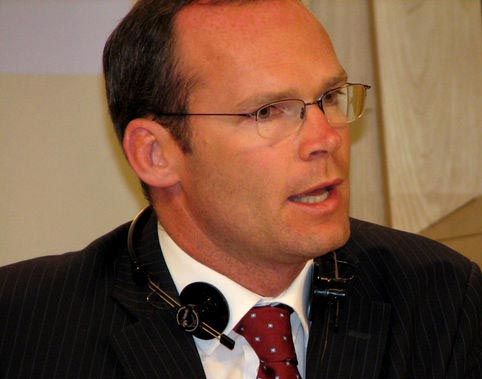
19 - 20 March 2012. Kigali. Second meeting of the Grow Africa “First Wave” Initiative. The meeting brought together high ranking officials from the Agriculture Ministries of the seven participating countries. Included in this group were three Agriculture Ministers from Burkina Faso, Tanzania and Kenya. Diplomatic representatives from the G8 Countries in Kigali, Development Partners and representatives from the AU, NEPAD and World Economic Forum were also in attendance.
The purpose of the meeting was to encourage the World Economic Forum and G8 Summit to support “First Wave” countries as they prepare their investment blueprints. The meeting also served as preparation for the upcoming Grow Africa Forum meeting in Addis Ababa on 8-9 May 2012 and for an initiative at the G8 Summit on 18-19 May which will focus on food security and agricultural investment.
Background:
Initiated at the 2011 World Economic Forum (WEF) on Africa, and convened jointly by WEF, the African Union Commission and the NEPAD Agency, the Grow Africa Forum has included seven countries as part of its ‘first wave’. Rwanda was invited by the WEF and the AU to participate in the Grow Africa Forum, a multi-country platform to attract and promote private investment in agriculture. The first meeting of the Grow Africa Forum was held in Dar Es Salaam from 7-8 November 2011 and included representatives from “First Wave” countries, alongside private investors and major donors. The “First Wave” countries include Burkina Faso, Tanzania, Mozambique, Ghana, Kenya, Ethiopia and Rwanda.
Related:
 22 March 2012. Ireland's Tánaiste and Minister for Foreign Affairs and Trade, Eamon Gilmore (left) said that the Irish agri-food industry has a key role to play in developing the farming sector in African countries. Speaking at the launch of the €2 million “Africa Agri-food development fund”, Mr Gilmore said the partnership between the department of foreign affairs and the department of agriculture is a new way of working on aid. “Irish companies are well placed to play a role in meeting Africa’s increasing food needs. Our agri-food industries have the skills and the vision to both trade and invest in Africa,” he said. Mr Gilmore said the collaboration builds on work begun by the government’s Africa Strategy, and would expand on the role already being played by Ireland in countries like Mozambique. “It is in the context of the Africa Strategy, and it is the start of an initiative which will advance our aid programme and open up opportunities for trade and investment in Africa by the agri-food sector,” he said. Also at the launch, Minister for Agriculture Simon Coveney (right) said the partnership will allow Irish firms to use experience gained in the shift from subsistence farming to an export industry in collaboration with African partners.
22 March 2012. Ireland's Tánaiste and Minister for Foreign Affairs and Trade, Eamon Gilmore (left) said that the Irish agri-food industry has a key role to play in developing the farming sector in African countries. Speaking at the launch of the €2 million “Africa Agri-food development fund”, Mr Gilmore said the partnership between the department of foreign affairs and the department of agriculture is a new way of working on aid. “Irish companies are well placed to play a role in meeting Africa’s increasing food needs. Our agri-food industries have the skills and the vision to both trade and invest in Africa,” he said. Mr Gilmore said the collaboration builds on work begun by the government’s Africa Strategy, and would expand on the role already being played by Ireland in countries like Mozambique. “It is in the context of the Africa Strategy, and it is the start of an initiative which will advance our aid programme and open up opportunities for trade and investment in Africa by the agri-food sector,” he said. Also at the launch, Minister for Agriculture Simon Coveney (right) said the partnership will allow Irish firms to use experience gained in the shift from subsistence farming to an export industry in collaboration with African partners.